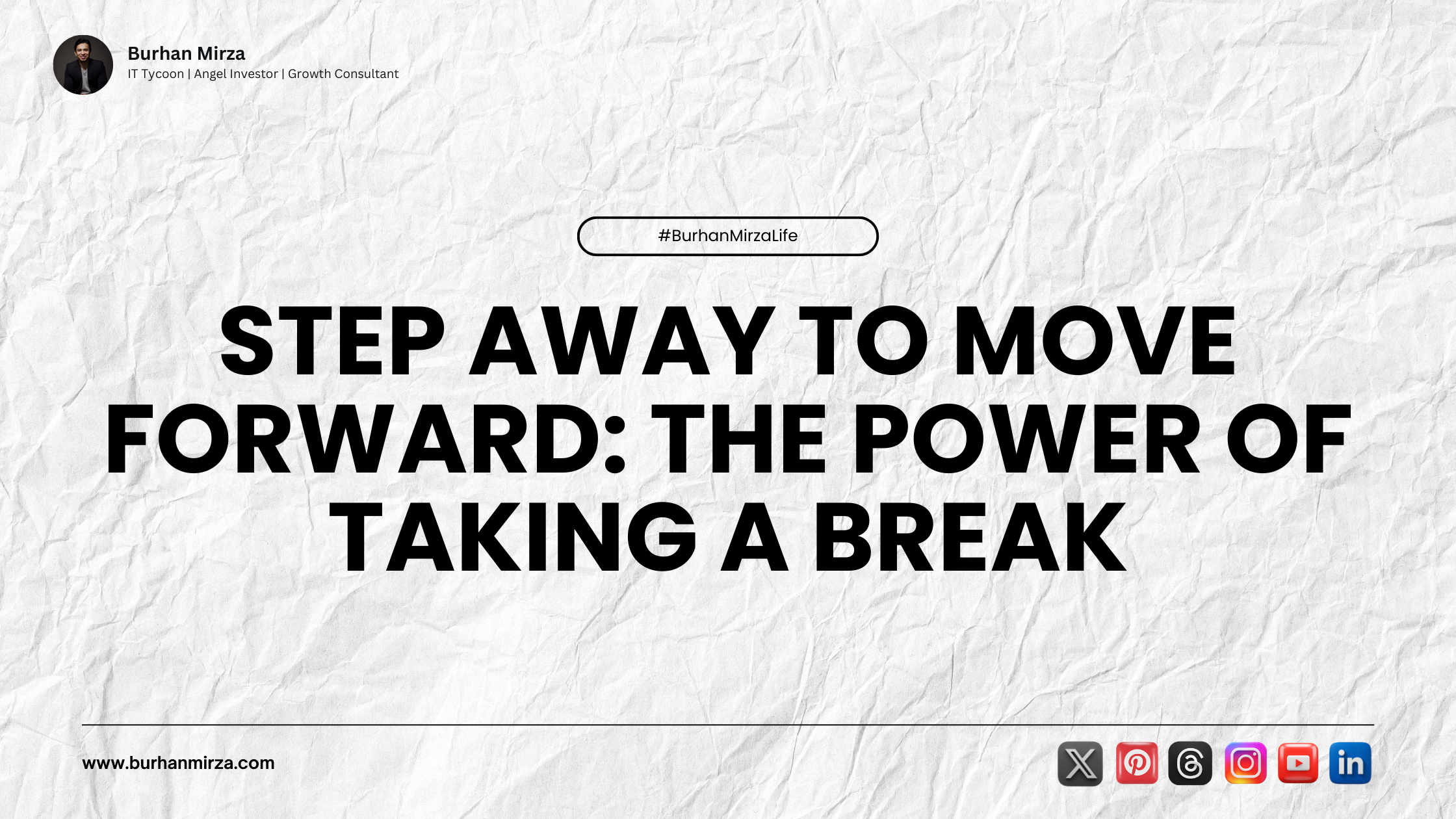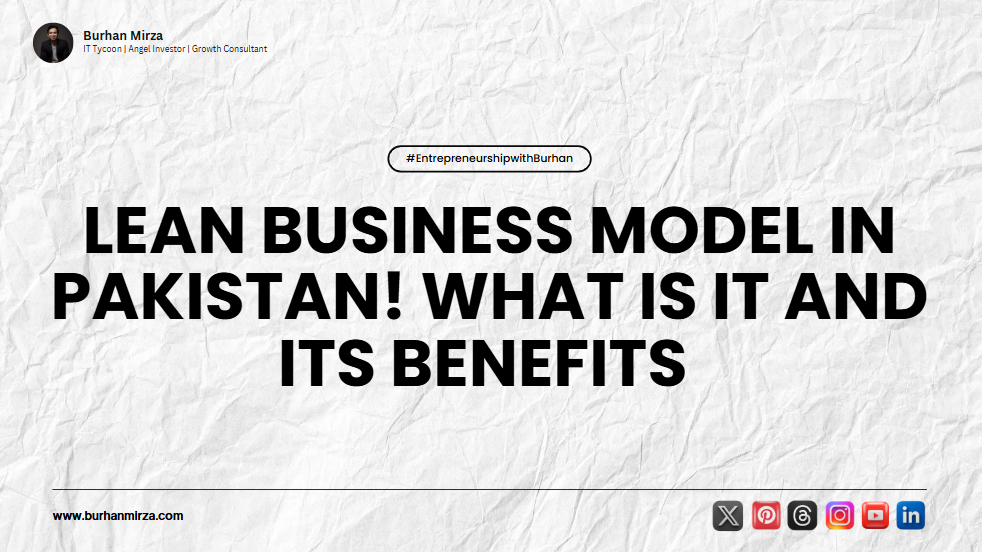 Blogs
Blogs
7 Things to Practice As a CEO
With money comes fame, with fame comes power, and with power comes responsibility. In Pakistan, we often overlook that last, crucial piece—and that’s a big problem for many startup CEOs. I’m not here to point fingers, but if you’re stepping into the world of “C-level” executives for the first time, this blog (and my accompanying video) is for you.
Here’s the truth: you can’t truly be a CEO unless you’re ready to shoulder the responsibilities that come with it. It’s not just about driving a fancy German car or living in a sprawling 1000-yard bungalow in DHA. Being a CEO means committing more than the standard 9-to-5. It’s about leading with purpose, tackling challenges head-on, and creating a meaningful impact through your leadership.
When I first became a CEO, I faced challenges I wasn’t prepared for. I made mistakes, and I often wished I had a mentor to guide me through the pitfalls of top-level leadership. That’s exactly why I’m writing this blog—to be the guide I once needed and to help you navigate the complexities of being a leader at the highest level.
If you want a quick glimpse into what I’ll cover here, check out my YouTube video. Let’s take this journey together!
7 Things that Make a Great CEO
1. A CEO Must Have an Actionable Plan
"True leadership turns vision into a shared mission—when a CEO's dream feels like everyone's destiny, action becomes unstoppable." - Muhammad Burhan Mirza
Your vision is the heartbeat of your business—it’s what drives everything forward and fuels your team’s ambition. But let’s be honest, having a vision is one thing; getting your team fully on board with it is another challenge altogether.
I’ve learned that just setting goals and KPIs doesn’t automatically align your team with your vision. Those are great for tracking progress, but they don’t inspire or connect people to the bigger picture. As a CEO, you have to be more than just a strategist; you need to be a dreamer. Share your vision in a way that makes your team feel it’s theirs too. When your plan becomes actionable and relatable, that’s when the magic happens.
2. Accept Change and Be Flexible
Every business faces highs and lows—it’s just part of the journey. As a CEO, your job is to be prepared, both mentally and physically, for whatever comes your way. Letting success inflate your ego or anxiety take over during tough times is a sign of weak leadership.
The key to staying calm under pressure is simple: plan ahead. Anticipate challenges, and have countermeasures ready for when things don’t go as planned. A steady, level-headed CEO inspires confidence, even when the road gets bumpy.
3. Always Be Fair to Your Team
"The ability to learn is the most important quality a leader can have." — Sheryl Sandberg, COO of Meta
As a CEO, your team is your biggest asset, and fairness is the foundation of strong leadership. Favoritism or unequal treatment not only demotivates your team but can also create a toxic work environment. Every employee, regardless of their role, should feel valued and treated equally.
Being fair doesn’t mean avoiding tough conversations or overlooking mistakes—it means holding everyone, including yourself, to the same standards. Recognize effort, celebrate achievements, and provide constructive feedback where necessary. Transparency in your decisions and actions builds trust and loyalty within your team.
When fairness becomes a part of your leadership DNA, you’ll notice a shift: employees feel more engaged, take ownership of their work, and collaborate effectively. A fair leader inspires respect, which ultimately leads to a more cohesive and productive team dynamic.
4. Manage the Financial Health of Your Company
"Profit is the lifeblood of a business, but foresight and discipline are the heartbeat that keep it thriving." - Muhammad Burhan Mirza
The financial health of your company is its lifeline. If you’ve got that under control, you’ve tackled 80% of potential issues. However, financial challenges often rear their head during crises, which is why planning ahead is non-negotiable. Always set aside a contingency reserve to cover critical expenses, like salaries, during tough times—it’s your safety net for unexpected challenges.
At its core, business is about generating profit. If you’re not making money, you’re not running a sustainable business. Keep a close eye on your expenses and avoid unnecessary hires. Many companies face financial strain simply because they expand their teams without a solid plan for the future.
Stay vigilant, plan strategically, and treat your financials with the respect they deserve—because a financially healthy business is a thriving business.
5. Communication Is Key
"The single biggest problem in communication is the illusion that it has taken place." — George Bernard Shaw
Whether it’s with stakeholders or your team, clear and honest communication is the game-changer. I’ll never forget a time when I fell short of the year’s promised numbers—it was tough. Reporting it to the stakeholders wasn’t easy, and sure, I could’ve sugar-coated the situation or asked for more time. But I knew that wouldn’t solve anything in the long run.
So, I laid it all out—the issues, the setbacks, everything. Then, we worked together to implement company-wide changes. And you know what? The next year, we didn’t just recover; we doubled our results.
Here’s the deal: honest communication might feel like a risk, but it’s what builds trust and drives real progress. Trying to spin things to your advantage? That’s just a temporary win at best. Be upfront, be real—it’s always worth it.
6. All Decisions Must Be Backed by Data
"Decisions backed by data are not just choices—they’re investments in the future, built on a foundation of clarity and insight." - Muhammad Burhan Mirza
Gut feelings have their place, but data-driven decisions deliver the most reliable results. While there’s room for intuition in certain moments, relying solely on instincts can lead to fleeting success. Data, on the other hand, provides a clear picture of your company’s performance, resource allocation, and growth potential.
By analyzing departmental insights and comparing them with industry trends, you can make informed decisions that are grounded in proven strategies. Evidence-based practices don’t just reduce guesswork—they significantly improve your chances of achieving sustainable growth.
Think of it this way: why reinvent the wheel? Study what works for your competitors, adapt it to fit your business model, and refine it for success. Personally, I never make decisions without credible information. Hasty choices without solid data often lead to regrettable outcomes. When in doubt, let the numbers guide you.
7. Don’t Do Everything Yourself
"Great things in business are never done by one person. They’re done by a team of people." — Steve Jobs
Last but not least, I can’t stress enough “NOT” being a lone wolf. To me, there’s no such thing as doing everything alone. It’s only natural to understand your limits and hire a team in domains where you feel you aren’t good enough. This not only boosts your productivity but gives you the time and energy to focus on things that matter as a CEO.
 Muhammad Burhan Mirza
Muhammad Burhan Mirza My Story
My Story Events
Events Social Highlights
Social Highlights Books
Books Blog
Blog Press Kit
Press Kit  Contributions
Contributions 

